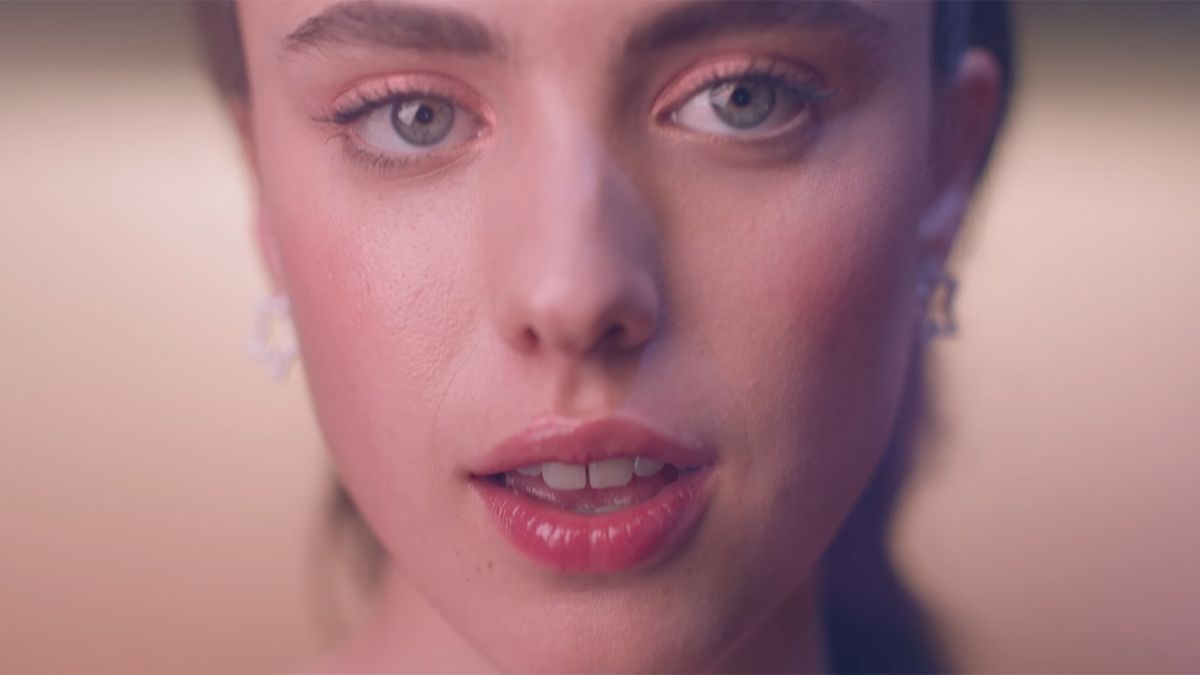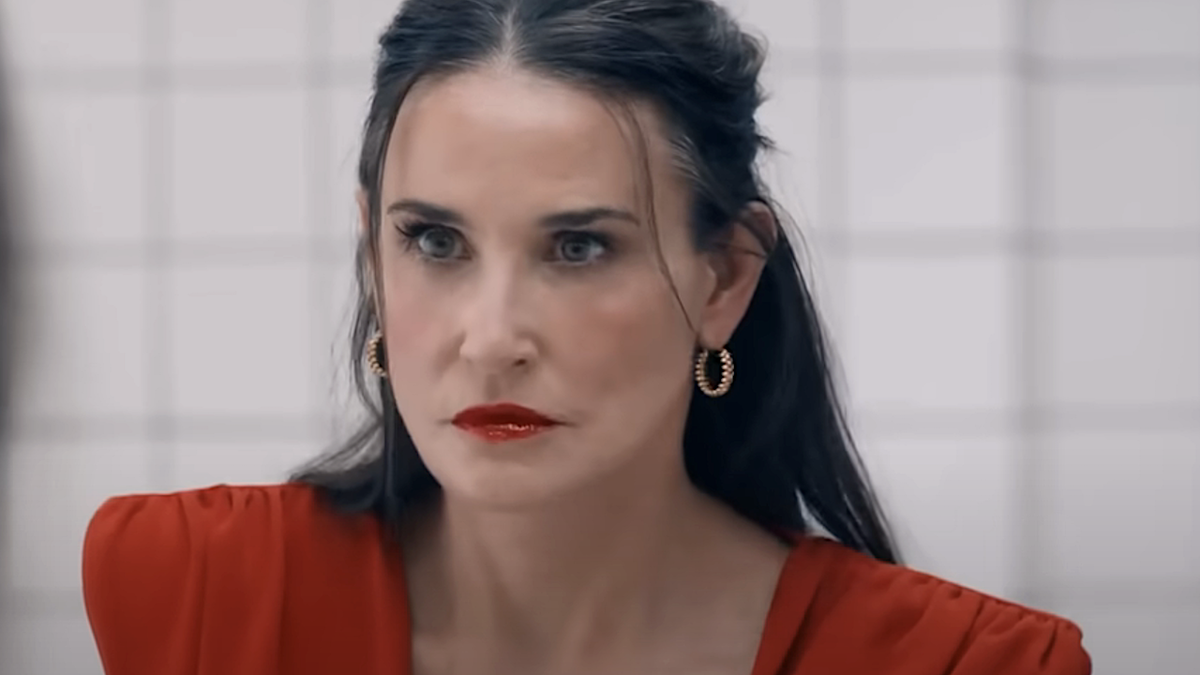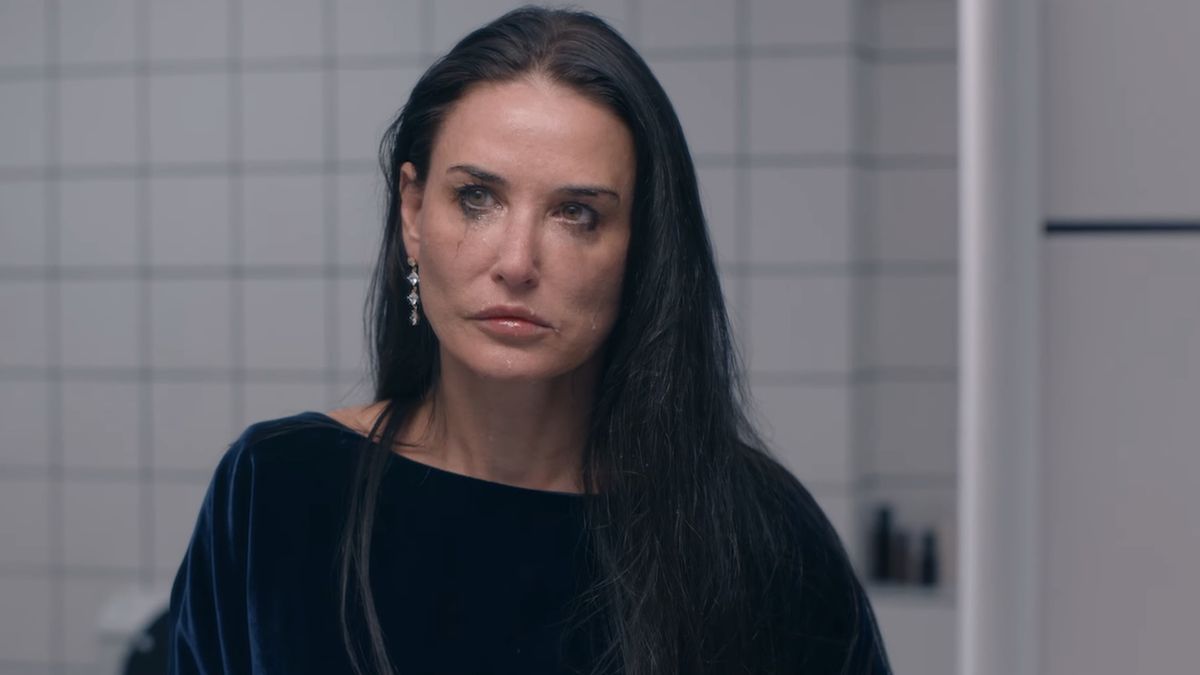Products You May Like
Some SPOILERS are ahead for The Substance.
I’m perfectly happy walking out of a movie theater with a smug smile on my face after enjoying a fun little escape out of the corners of my reality to a dark room with a group of strangers. But, every once in a while, a film like The Substance comes along (one of the best horror movies I’ve seen in a while) and I leave a movie theater feeling like the projected images I spent time with left my skin violently sunburnt, and I walk to my car in quiet contemplation of what I just witnessed. I don’t want every trip to the movies to feel like this, but when it happens, I sure remember and treasure the power of movies more.
The body horror movie was given a perfect five-star score in CinemaBlend’s The Substance review, and has been praised by tons of critics, but, it is a lot to stomach. It’s not one I’d readily recommend given its intense nature. Heck, I even thought about walking out at a couple of points, and definitely covered my face in fear. I can only compare my experience of watching The Substance to other intensity found in the insane twist ending in Midsommar or the many feelings I had about Bones And All. But, at the same time, it’s a lot more than blood and guts, or the nudity it has gone viral for. It has a really powerful message to tell about self love that I truly am going to take with me for a long time. I still get chills when I think about it, and now that I’m no longer in the movie’s vicious embrace, I can say I’m happy I went to see it for what I took away about self love.

The Substance Tackles Fear Of Aging With A Powerful Concept
The Substance caught my attention immediately as it follows Demi Moore’s Elisabeth Sparkle, a celebrated Hollywood star and lead of a long-running aerobics show. In a very literal move by the film, Moore gets dismissed from her job on her 50th birthday and learns that she will be replaced with a younger talent. But, then she learns about a black market drug called “The Substance” that will allow her to be young every other week. She orders the mysterious drug, and transforms to Margaret Qualley’s Sue every other week, swapping being conscious in her own body and giving it up for Sue’s perfect young body. Sue gets the job to replace Elisabeth as the newly-retired star becomes a secondary character in her own life, spending her week in her body droning in front of the TV and eating a ridiculous amount of food. It only gets worse from there.
I found this setup to be very powerful in and of itself because it illustrates through its concept how easy it can be for someone like Moore’s Elisabeth can place their energy on what they were in their younger years rather than living in the present. We place so much emphasis and value on young women and their bodies, and I’ve seen firsthand women in the age bracket of Elisabeth subtly demean their present selves and glorify the days when they were 20-somethings. It almost feels like human nature that we will mourn what’s thought of as the most beautiful version of ourselves we can be. But wow, did watching The Substance make me acutely aware of how that mindset comes at the expense of betraying ourselves, especially through its visual concept.

But, At No Point In The Substance Did I Prefer Sue
As writer/director Coralie Fargeat powerfully achieved with The Substance, at no point in the movie did I want Elisabeth Sparkle to be Sue instead of herself. While I could understand that Elisabeth was not comfortable with her body and felt like a cast aside figure of Hollywood yesteryear, I wanted to watch her move forward with her next chapter in her original body way more — see her go on the date she gets invited to early in the film and see her embrace the beauty I saw in her.
Of course, as horror movies go, Elisabeth Sparkle doesn’t get the happy-go-lucky middle aged coming-of-age arc I wanted to see. I instead watched her give up her time and her body for a younger version of herself. I kept saying to myself… Why does she want to live those early years again? Why does she care so much about being perfect, when she is already magnificently beautiful, now? This is a really intense way to treat yourself. Sure, being younger meant less worry lines, but earning those is such a privilege.
It’s Demi Moore… she’s gorgeous and iconic, obviously. Why doesn’t she see that? This element of the movie made me look further into my own inner monologue and how I can have empathy and appreciation for others’ beauty, and can find myself being more critical of my own. It’s easy when we look in the mirror at ourselves everyday, but goodness me, did The Substance communicate the violence of not treating one’s self image with care with a sharp syringe full of green goo as it moves into its body in the horrific second half.

The Substance Reminded Me About How Vital Self Love Is
I also got intrigued by my reaction to The Substance because I am in my twenties right now, and I could relate to Demi Moore’s character a lot more than I expected too. It made me step back and realize that honestly, I think I would have related to her earlier in my twenties and as a teen, too. All women will probably relate to Elisabeth Sparkle, because no matter one’s age or beauty, we’re constantly fed that we’ll never be enough. Margaret Qualley’s Sue is the ideal – she is not real or sustainable. She’s a picture perfect social media, photoshopped magazine concept that is summoned through Elisabeth hating herself as she is. And, that was heartbreaking to me, because it’s so easy for women to look through one’s own beauty and aspire to this broken ideal. Pretty early in the film, I wanted to hug my beautiful body and take back any mean words that’d ever floated in my head about it, because the ideal is not as pretty as what’s real and true.
As The Substance so beautifully and viscerally showcases, the ideal that is Sue is also created and sustained at the expense of Elisabeth’s own self love. As the movie intensely and literally shows its concept as the plot moves forward into its body horror insanity, Sue starts taking away from the beauty of Elisabeth in order to exist and survive, and I was shuddering at the results. (This is when the movie really goes there!) I won’t get into specifics of the final act, but I was intrigued that by the end of The Substance Elisabeth does come to want to have her own face, but in the most depressing and nightmarish way possible.
Oddly enough, I’m going to look in the mirror with more kindness after The Substance, and it’s rare for a movie that’s also so campy, gory and ridiculous to inspire that. I’m not sure how any upcoming horror movies are going to top this one for these reasons.
